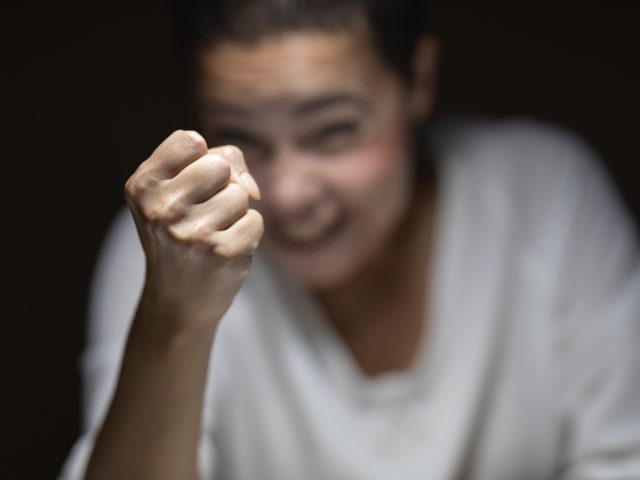Taiwan’s Ministry of Foreign Affairs revealed on Monday one of its officials in Fiji suffered a violent assault at the hands of Chinese communist diplomats, requiring hospitalization for a concussion.
The incident reportedly occurred at an event held by Taiwan’s representative office in the country – its unofficial embassy – to celebrate Taiwan’s National Day on October 8. The island nation observes the holiday on October 10, which this week fell on a Saturday. Chinese government agents allegedly appeared at the event uninvited and demanded to photograph and document the gathering. When denied entry, they became violent, resulting in at least one hospitalization.
Taipei called the event “uncivilized” and urged global condemnation. The Communist Party of China responded to the allegations by claiming the mirror image of the true events actually occurred: that the Taiwanese attacked Chinese agents. Beijing did not explain how the hospitalization occurred if this were the case.
Taiwan is a sovereign state that has never been part of a united China governed by Beijing. The Communist Party insists, however, that Taiwan is a rogue province and uses its military and economic power to pressure other foreign states into refusing to recognize Taiwan. Beijing also regularly threatens to invade Taiwan.
In a speech last year, Chinese dictator Xi Jinping announced that all Taiwanese who did not surrender to communism, and all those in other parts of Asia that Beijing wrongly considers part of China, would have their “bones ground to powder.”
Taiwan’s Deputy Foreign Minister Harry Tseng told the nation’s legislature on Monday that two diplomats from China’s embassy in Fiji arrived uninvited to the Taiwanese event at Suva’s Grand Pacific Hotel and began taking photos, apparently of the guests at the event to identify and track them. Taiwanese officials approached them and asked for them to identify themselves. Tseng told lawmakers that event organizers asked the two men to leave, and they did so briefly before returning and attacking members of the Taiwanese delegation. The event took place on October 8.
An unidentified Taiwanese government employee was hospitalized with a concussion, Taiwanese officials confirmed. No evidence exists of any physical damage on the part of the Chinese attackers.
Tseng reportedly added that Fiji itself was “under a lot of political pressure” not to investigate the incident and punish those responsible, as Fiji enjoys diplomatic relations with Beijing and not Taipei. The government of Fiji has been conspicuously absent from public discourse on the incident.
Taiwanese Foreign Minister Joseph Wu issued an official comment on Monday, stating that Taiwanese officials “strongly condemn the violence against our diplomats in Fiji by China’s uncivilized ‘wolf warriors,'” a term originating in Chinese propaganda cinema to refer to Communist Party diplomats who use violence and bullying to achieve their goals. “As a sovereign state, we’ll continue celebrating [Taiwan’s National Day] everywhere, every year. Taiwan is a force for good in the world & we won’t be intimidated.”
Prior to Taipei’s confirmation of the incident, it came to light in a publication affiliated with New Zealand’s Auckland University of Technology (AUT), which suggested that those involved had “hushed up” the altercation. The publication described the attack as an “astonishing physical altercation” and a “serious diplomatic incident” that may result in no repercussions for China because the attackers claimed diplomatic immunity protects them from prosecution.
“No other details are available for the moment. But it is clearly unacceptable for Chinese diplomats to assault other foreign representatives on Fijian soil,” the report concluded.
Lawmakers reportedly asked Tseng about the early report and the silence on Taiwan’s part between October 8 and October 19. Tseng said Taipei wanted to confirm the details of the incident before publicly condemning China, given the severity of the crime.
Tseng asserted that China was guilty of “brutal and irrational actions to damage peace and rationality” and that tensions between the two countries have “never been so serious.”
The Communist Party of China issued a statement through its embassy in Fiji claiming that the Chinese attackers, not the Taiwanese victim, was injured, and largely condemning not the violence, but Taiwan’s routine reception to celebrate its national day. It claimed that all reporting on the incident was “totally inconsistent with facts.”
“The fact is that the Taipei Trade Office in Fiji held the so-called ‘National Day’ event in public in the evening of October 8, 2020,” the embassy said. “This kind of function clearly violates the one-China principle and the relevant rules and regulations of the Fijian government, with an attempt to create ‘two Chinas’ or ‘one China, one Taiwan’ internationally.”
The statement claimed Taiwanese officials “acted provocatively,” without providing details, and that the Chinese attackers “were carrying out their official duties in the public area outside the function venue.” One Chinese attacker, it went on, suffered “injuries and damage.”
Chinese state media have also entered the fray. The editor-in-chief of Global Times, China’s most aggressive propaganda newspaper, insisted on Monday that an attack by Chinese diplomats was impossible because they “always act in a gentle manner.”
China’s Communist Party regularly threatens violence against Taiwan.
“Anyone who attempts to split any region from China will perish, with their bodies smashed and bones ground to powder,” Xi Jinping said in an address in October 2019. “Any external forces that support the splitting of China can only be regarded as delusional by the Chinese people.”
In April, China’s People’s Liberation Army (PLA) announced “military struggle preparations” against Taiwan, triggering regular maritime drills clearly practicing the invasion of an island nation.

COMMENTS
Please let us know if you're having issues with commenting.